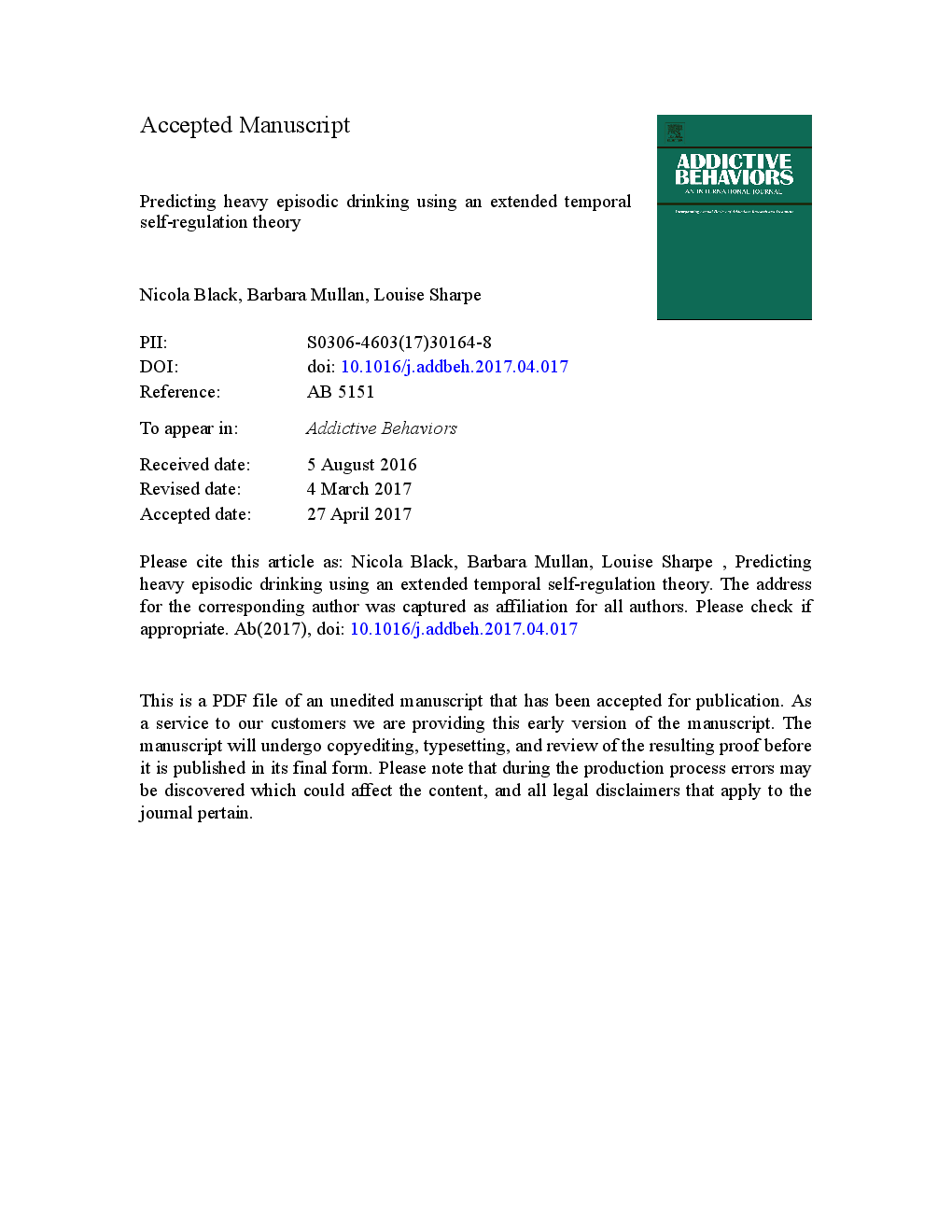ترجمه فارسی عنوان مقاله
پیش بینی مصرف نوشابه های سنگین با استفاده از نظریه تمدید موقعیت خود تنظیمی
عنوان انگلیسی
Predicting heavy episodic drinking using an extended temporal self-regulation theory
| کد مقاله | سال انتشار | تعداد صفحات مقاله انگلیسی |
|---|---|---|
| 131607 | 2017 | 30 صفحه PDF |
منبع

Publisher : Elsevier - Science Direct (الزویر - ساینس دایرکت)
Journal : Addictive Behaviors, Volume 73, October 2017, Pages 111-118

